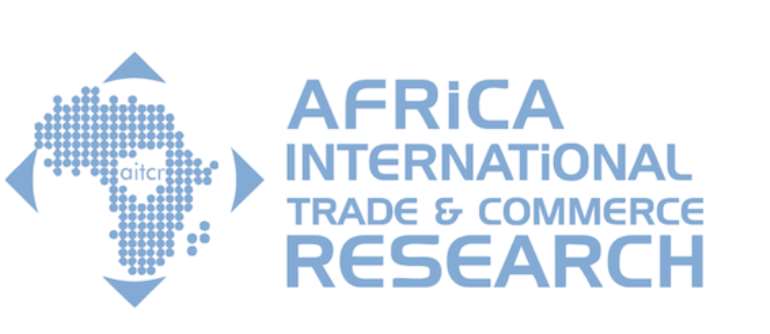Keeping Faith With Pan-african Integration

The disruptions caused by the novel corona-virus pandemic also known as COVID-19 can be felt in almost all aspects of human life; from trade, finance, travel, employment, agriculture, health, manufacture, education, etc; affecting individuals, businesses and national economies alike. Given the extent of the impact of COVID-19 on the traditional inter-continental trade routes, expansion and development of intra-Africa trade that are vital for economic recovery in the region. Several plans, projects and projections have since been halted as a result of COVID-19. Amongst such is the postponed trading commencement date for the much anticipated African Continental Free Trade Area (AfCFTA) agreement. Intra-African trade, which is defined as the average of intra-African exports and imports, was around 2% during 2015–2017, and the intra-African exports was 16.6% of total exports in 2017, much lower compared with 68.1% in Europe, 59.4% in Asia, and 55.0% in North America [1] .
The principal objectives of AfCFTA are the free movement of people, goods and services within the continent is the hardest hit by the pandemic. It is important to note that the new economic dilemmas which have now come to stay due to the pandemic have shrunk the 2.4% economic growth that was earlier projected for sub-Saharan Africa in 2019 to between -2.1 and -5.1% in 2020 [2] ; which is likely to lead to recession. This negative growth is also likely to persist and increase due to inter-continental demand, disruptions of supply and demand chains and domestic production. The effect will translate to growing unemployment and poverty rate in the region. Besides, the UN estimates that 30 million [3] people will be joining the already staggering figure of 400 million poor people in Africa and this has a direct correlation to the rising case of food insecurity [4] .
Africa needs to keep faith in the Pan-African integration agenda and plan for itself because usual aid givers and intercontinental partners are also hit by the pandemic, some are in more severe ways. A concerted effort needs to be made to integrate Africa regional economies to better respond to shocks such as the current COVID-19 crisis. The current level of economic integration on the continent is relatively low with an average score of 0.327 out of 1 [5] . At the current rate the impact of the virus is spreading, global Foreign Direct Investment (FDI) flow is expected to fall to between -5% and -15% [6] . The implementation of the AfCFTA agreement will make the African continental market the largest free trade area in the world with an estimated population of 1.2 billion people and GDP worth $3.4 trillion. [7]
More than ever, African leaders need to re-invigorate their efforts and commitment towards pan-Africa integration. AfCFTA will not only resolve the economic disaster caused by COVID-19 but also presents a vital opportunity for Africa to attain true integration and economic prosperity.
Delay in the implementation of AfCFTA should not be treated lightly but as an opportunity to assess the impact of the pandemic and rethink ways through which AfCFTA may be used to facilitate economic recovery by taking advantage of the new trends emerging from the disruption.
For a successful economic recovery post-COVID-19; boosting intra-African trade will provide an alternative to stimulus packages by creating jobs for the continent’s teeming youths, foreign exchange stability, industrial development and economic growth. To achieve this, special attention must be given to labour-intensive sectors, such as agriculture, to preserve jobs and livelihoods and ensure food security for the continent.
Finally, to increase the intra-regional trade, African countries as a matter of urgency need to make concerted efforts towards harmonization of their trade-related regulations, digitalise customs controls, intellectual property issues and reduce both tariff and non-tariff barriers. Cross border infrastructural development is another critical factor that needs urgent attention as connectivity and organized routes will reduce logistics cost of intra-African trade. This crisis provides an opportunity to take more concrete steps towards realizing the African Continental Free Trade Area, in line with agenda 2063- creating The Africa We Want!
Sand Mba Kalu is a Director at Africa International Trade & Commerce Research DL: +234 8147429461; +2349058603907 Abuja, Nigeria - [email protected] - Twitter: @Africatradelink |Fb: www.africainternationaltrade.com/africainternationaltrade - LinkedIn: Africa International Trade & Commerce Research - www.africainternationaltrade.com
[1] https://blogs.worldbank.org/africacan/how-will-covid-19-impact-africas-trade-and-market-opportunities
[2] https://blogs.worldbank.org/africacan/how-will-covid-19-impact-africas-trade-and-market-opportunities
[3] https://reliefweb.int/report/world/covid-19-could-push-30-million-african-children-poverty
[4] https://www.brookings.edu/blog/future-development/2019/03/28/poverty-in-africa-is-now-falling-but-not-fast-enough/#:~:text=Today%2C%20one%20in%20three%20Africans,in%20the%20fight%20against%20poverty.
[5] https://www.africanews.com/2020/05/22/africa-regional-integration-index-underlines-integration-as-key-to-building-more-resilient-economies//
[6] https://blogs.worldbank.org/africacan/how-will-covid-19-impact-africas-trade-and-market-opportunities
[7] https://au.int/en/ti/cfta/about
